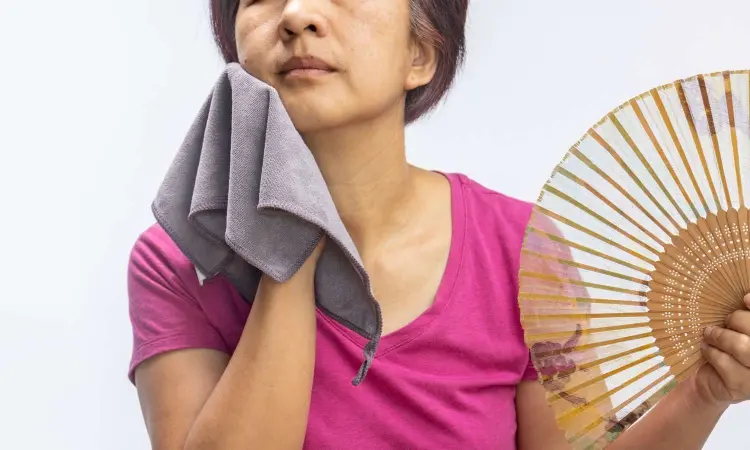- Home
- Medical news & Guidelines
- Anesthesiology
- Cardiology and CTVS
- Critical Care
- Dentistry
- Dermatology
- Diabetes and Endocrinology
- ENT
- Gastroenterology
- Medicine
- Nephrology
- Neurology
- Obstretics-Gynaecology
- Oncology
- Ophthalmology
- Orthopaedics
- Pediatrics-Neonatology
- Psychiatry
- Pulmonology
- Radiology
- Surgery
- Urology
- Laboratory Medicine
- Diet
- Nursing
- Paramedical
- Physiotherapy
- Health news
- Fact Check
- Bone Health Fact Check
- Brain Health Fact Check
- Cancer Related Fact Check
- Child Care Fact Check
- Dental and oral health fact check
- Diabetes and metabolic health fact check
- Diet and Nutrition Fact Check
- Eye and ENT Care Fact Check
- Fitness fact check
- Gut health fact check
- Heart health fact check
- Kidney health fact check
- Medical education fact check
- Men's health fact check
- Respiratory fact check
- Skin and hair care fact check
- Vaccine and Immunization fact check
- Women's health fact check
- AYUSH
- State News
- Andaman and Nicobar Islands
- Andhra Pradesh
- Arunachal Pradesh
- Assam
- Bihar
- Chandigarh
- Chattisgarh
- Dadra and Nagar Haveli
- Daman and Diu
- Delhi
- Goa
- Gujarat
- Haryana
- Himachal Pradesh
- Jammu & Kashmir
- Jharkhand
- Karnataka
- Kerala
- Ladakh
- Lakshadweep
- Madhya Pradesh
- Maharashtra
- Manipur
- Meghalaya
- Mizoram
- Nagaland
- Odisha
- Puducherry
- Punjab
- Rajasthan
- Sikkim
- Tamil Nadu
- Telangana
- Tripura
- Uttar Pradesh
- Uttrakhand
- West Bengal
- Medical Education
- Industry
Dietary intervention as good as HRT for reducing menopausal hot flashes

USA: A new study published in the journal Menopause, has found that a dietary intervention consisting of a plant-based diet, minimizing oils, and daily soybeans are about as effective (88%) as hormone replacement therapy (70%-90%) for reducing postmenopausal hot flashes and associated symptoms.
The WAVS trial-the Women's Study for the Alleviation of Vasomotor Symptoms-found that a plant-based diet rich in soy reduced moderate to severe hot flashes by 88% and helped women lose, on average, eight pounds in 12 weeks.
"We do not fully understand yet why this combination works but it seems that these three elements are key-avoiding animal products, reducing fat, and adding a serving of soybeans," explains lead researcher Neal Barnard, MD, president of the Physicians Committee and adjunct professor at the George Washington University School of Medicine. "Our results mirror the diets of places in the world, like pre-Westernized Japan and modern-day Yucatán Peninsula, where a low-fat, plant-based diet including soybeans is more prevalent and where postmenopausal women experience fewer symptoms."
The study published today is the second phase of a two-part trial, the first of which was also published in Menopause in 2021. The fall timing of the first trial raised the question of whether this symptomatic improvement might have been attributed to cooler temperatures. But women who began the study as weather warmed up in the spring had the same benefit, ruling out the effect of outside temperature.
"These new results suggest that a diet change should be considered as a first-line treatment for troublesome vasomotor symptoms, including night sweats and hot flashes," explains Dr. Barnard.
Included in the study were 84 postmenopausal women reporting two or more hot flashes per day. They were randomly assigned either to an intervention group-consisting of a low-fat, vegan diet, including half a cup of cooked soybeans daily-or to a control group that made no diet changes for 12 weeks.
"This study demonstrates the effectiveness of a dietary intervention for menopausal symptoms," Dr. Barnard explains. "As well, it is precisely the diet that would be expected to reduce the health concerns of many women reaching menopause: an increasing risk of heart disease, breast cancer, and memory problems."
Reference:
Barnard, Neal D. MD, FACC1,2; Kahleova, Hana MD, PhD2; Holtz, Danielle N. BS2; Znayenko-Miller, Tatiana MSHS2; Sutton, Macy MS2; Holubkov, Richard PhD3; Zhao, Xueheng PhD4; Galandi, Stephanie MS4; Setchell, Kenneth D. R. PhD, FAASLD4,5. A dietary intervention for vasomotor symptoms of menopause: a randomized, controlled trial. Menopause: October 18, 2022 - Volume - Issue - 10.1097/GME.0000000000002080 doi: 10.1097/GME.0000000000002080
Dr Kamal Kant Kohli-MBBS, DTCD- a chest specialist with more than 30 years of practice and a flair for writing clinical articles, Dr Kamal Kant Kohli joined Medical Dialogues as a Chief Editor of Medical News. Besides writing articles, as an editor, he proofreads and verifies all the medical content published on Medical Dialogues including those coming from journals, studies,medical conferences,guidelines etc. Email: drkohli@medicaldialogues.in. Contact no. 011-43720751


